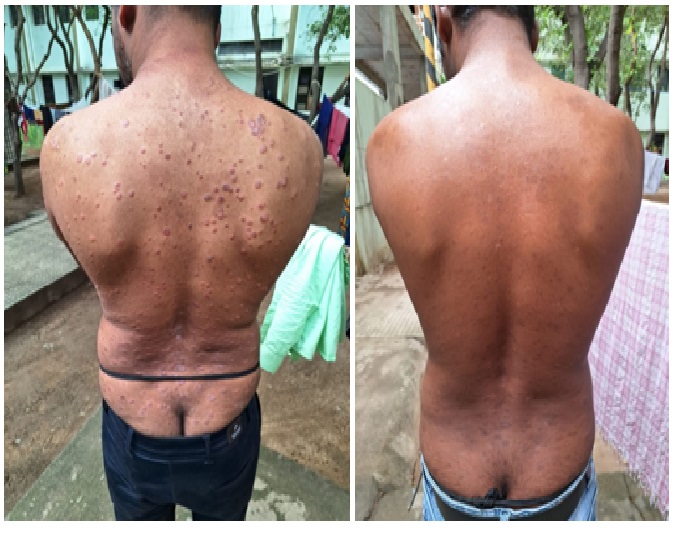Evaluating the Anti-Inflammatory Impact of Virecana Karma with Manibhadra Guda in Psoriasis (Kitibhakushtha)
DOI:
https://doi.org/10.47070/ayushdhara.v11i5.1773Keywords:
Kitibhakushtha, Psoriasis, Virecana, Inflammatory markers, Anti- inflammatory effect.Abstract
Kushtha is described in Ayurvedic texts as a stubborn skin disorder that falls under the category of Raktaja vikara’s. In modern parlance, can be correlated with psoriasis, a genetically determined autoimmune inflammatory skin disorder. It is characterized by thickened, red, and scaly itchy plaques, with a pathogenesis that remains unclear in contemporary medicine. The aim of this study is to evaluate the anti-inflammatory effects of Virecana by using inflammatory markers such as IL-6, hs-CRP, ESR, and the PASI score. Methodology: Pre and post interventional study, the treatment regimen included Amapacana with Citrakadi Vati, followed by 5 days of Snehapana with Murchita Go Ghrta, 3 days of Abhyanga and Atapa Sevana, and Virecana Karma with Manibhadra Guda for 1 day, followed by 7 days of Samsarjana Krama. Consequently, the active study duration ranged from 15 days. Inflammatory markers IL-6, hs-CRP, ESR, and PASI scores were assessed on the 0th day, after treatment (15th day), and one-month post-Virecana (45th day). Results: Statistical analysis revealed that the mean IL-6, hs-CRP, ESR, and PASI scores showed significant differences across the time points (BT, AT, and AF). Conclusion: It is concluded that IL-6, hs-CRP, ESR, and PASI scores were more effectively down-regulated after follow-up compared to after treatment, and both were significantly lower than before treatment.
Downloads

Downloads
Published
Issue
Section
License
Copyright (c) 2024 AYUSHDHARA

This work is licensed under a Creative Commons Attribution-NonCommercial-ShareAlike 4.0 International License.


